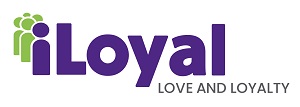Updated March 2024
Introduction
The American Marketing Association – Orange County, CA Chapter (“AMAOC”) needs to gather and use certain information about individuals. These can include customers, suppliers, business contacts, volunteers and other people the organization has a relationship with or may need to contact. This policy describes how this personal data must be collected, handled and stored to meet the company’s data protection standards — and to comply with the law.Why this policy exists
This data protection policy ensures that AMAOC:- Complies with data protection law and follow good practice
- Protects the rights of volunteers, members and partners
- Is open about how it stores and processes individuals’ data
- Protects itself from the risks of a data breach
Data protection law
The Data Protection Act 1998 describes how organizations — including AMAOC — must collect, handle and store personal information. These rules apply regardless of whether data is stored electronically, on paper or on other materials. To comply with the law, personal information must be collected and used fairly, stored safely and not disclosed unlawfully. The Data Protection Act is underpinned by eight important principles. These say that personal data must:- Be processed fairly and lawfully
- Be obtained only for specific, lawful purposes
- Be adequate, relevant and not excessive
- Be accurate and kept up to date
- Not be held for any longer than necessary
- Processed in accordance with the rights of data subjects
- Be protected in appropriate ways
- Not be transferred outside the European Economic Area (EEA), unless that country or territory also ensures an adequate level of protection
People, risks and responsibilities
Policy scope
This policy applies to:- All volunteers and volunteers of AMAOC
- All contractors, suppliers and other people working on behalf of AMAOC
- Names of individuals
- Postal addresses
- Email addresses
- Telephone numbers
- …plus any other information relating to individuals
Data protection risks
This policy helps to protect AMAC from some very real data security risks, including:- Breaches of confidentiality. For instance, information being given out inappropriately.
- Failing to offer choice. For instance, all individuals should be free to choose how the company uses data relating to them.
- Reputational damage. For instance, the company could suffer if hackers successfully gained access to sensitive data.
Responsibilities
Everyone who works for or with AMAOC has some responsibility for ensuring data is collected, stored and handled appropriately. Each team that handles personal data must ensure that it is handled and processed in line with this policy and data protection principles. However, these people have key areas of responsibility:- The board of directors is ultimately responsible for ensuring that AMAOC meets its legal obligations.
- The webmaster is responsible for:
- Keeping the board updated about data protection responsibilities, risks and issues.
- Reviewing all data protection procedures and related policies, in line with an agreed schedule.
- Arranging data protection training and advice for the people covered by this policy.
- Handling data protection questions from volunteers and anyone else covered by this policy.
- Dealing with requests from individuals to see the data AMAOC holds about them (also called ‘subject access requests’).
- Checking and approving any contracts or agreements with third parties that may handle sensitive data.
- The organization’s administrator is responsible for:
- Approving any data protection statements attached to communications such as emails and letters.
- Addressing any data protection queries from journalists or media outlets like newspapers.
- Where necessary, working with other volunteers to ensure marketing initiatives abide by data protection principles.
Guidelines
- The only people able to access data covered by this policy should be those who need it for their work.
- Data should not be shared informally. When access to confidential information is required, volunteers can request it from the Board of Directors.
- Volunteers should keep all data secure, by taking sensible precautions and following the guidelines below.
- Personal data should not be disclosed to unauthorized people, either within the organization or externally.
- Data should be regularly reviewed and updated if it is found to be out of date. If no longer required, it should be deleted and disposed of.
Data storage
These rules describe how and where data should be safely stored. Questions about storing data safely can be directed to the Board of Directors. When data is stored on paper, it should be kept in a secure place where unauthorized people cannot see it. These guidelines also apply to data that is usually stored electronically but has been printed out for some reason:- When not required, the paper or files should be kept in a locked drawer or filing cabinet.
- Volunteers should make sure paper and printouts are not left where unauthorized people could see them, like on a printer.
- Data printouts should be shredded and disposed of securely when no longer required.
- Data should be protected by strong passwords that are changed regularly and never shared.
- If data is stored on removable media (like a thumb drive), these should be kept locked away securely when not being used.
- Data should only be stored on designated drives and servers and should only be uploaded to an approved cloud computing service.
Data use
Personal data is of no value to AMAOC unless the organization can make use of it. However, it is when personal data is accessed and used that it can be at the greatest risk of loss, corruption or theft:- When working with personal data, volunteers should ensure the screens of their computers are always locked when left unattended.
- Personal data should not be shared informally. In particular, it should never be sent by email, as this form of communication is not secure.
- Data must be encrypted before being transferred electronically. The IT manager can explain how to send data to authorised external contacts.
- Personal data should never be transferred outside of the European Economic Area.
- Volunteers should not save copies of personal data to their own computers. Always access and update the central copy of any data.
Data accuracy
The law requires AMAOC to take reasonable steps to ensure data is kept accurate and up to date. The more important it is that the personal data is accurate, the greater the effort AMAOC should put into ensuring its accuracy. It is the responsibility of all volunteers who work with data to take reasonable steps to ensure it is kept as accurate and up to date as possible.- Data will be held in as few places as necessary. Volunteers should not create any unnecessary additional data sets.
- Volunteers should take every opportunity to ensure data is updated. For instance, by confirming a customer’s details when they call.
- Data should be updated as inaccuracies are discovered. For instance, if a customer can no longer be reached on their stored telephone number, it should be removed from the database.
Subject access requests
All individuals who are the subject of personal data held by AMAOC are entitled to:- Ask what information the company holds about them and why.
- Ask how to gain access to it.
- Be informed how to keep it up to date.
- Be informed how the company is meeting its data protection obligations.
Disclosing data for other reasons
In certain circumstances, the Data Protection Act allows personal data to be disclosed to law enforcement agencies without the consent of the data subject. Under these circumstances, AMAOC will disclose requested data. However, the data controller will ensure the request is legitimate, seeking assistance from the board and from the company’s legal advisers where necessary. Providing information AMAOC aims to ensure that individuals are aware that their data is being processed, and that they understand:- How the data is being used
- How to exercise their rights
November 19, 2024 @ 8:15 am - November 20, 2024 @ 9:00 pm
1 Market Place
San Diego,
CA
CA
United States
+ Google Map
AMA Contingent to brightonSEO Conference
brightonSEO is the world’s largest search marketing conference and this November 19 & 20 it returns to San Diego for
September 19, 2024 @ 5:30 pm - 7:30 pm
3500 North Sepulveda Boulevard
Manhattan Beach,
CA
90266
United States
+ Google Map
Harnessing AI to Enhance What You Already Do Best: What Every Marketer Should Know About AI
Explore how brands foster community to create true connection, gather first-party data and feedback, enhance loyalty, and sustain growth.
Special thanks to AMA OC partners.









Join AMA
Become part of the marketing community in Orange County


